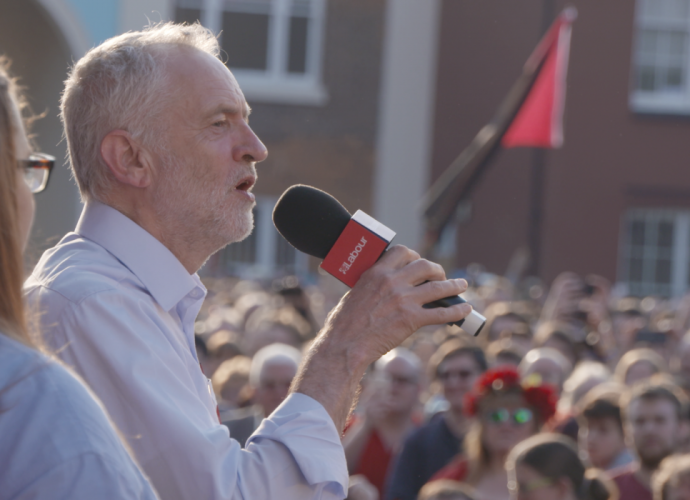The Labour party’s proposals call for a fundamental redistribution of income and power in the UK.
“When Labour wins elections, it is the people and not the powerful who win,” in this way Jeremy Corbyn describes his vision for the most ideal structure of power relations in British society.
“Britain needs a Labour government that is prepared to fight for people up and down this country,” Jeremy Corbyn says on his party’s official website. “Our Labour government won’t be scared to take on the powerful, who hoard our country’s wealth for themselves. Britain needs a government that will invest in people in every community to build a better future for every single person.”
The Labour’s policy for “taking on the powerful” seems to be straightforward: higher taxes on the rich and nationalisation of rail, water, mail and electricity distribution companies. A Corbyn government promises a genuine revolution in the British economy, revolving around a radical redistribution of income, assets, ownership and power.
The proposals are stated in an independent report commissioned by the Labour Party “Land for the Many: Changing the way our fundamental asset is used, owned and governed.”
Apart from the nationalisation of rail, water, mail and electricity distribution companies and significantly higher taxes on the rich, the plans outlined in the report include a four-day week, a universal basic income, a sharp increase in the minimum wage, 20:1 executive pay cap for companies with government contracts, an end to City bonuses, and an enforced transfer of 10 per cent of shares in every big company to workers.
A reform of tenant rights is proposed, too. There will be a “right to buy” for private tenants and a shake-up in the way that land is taxed to penalise wealthy landlords. To compensate for an acute shortage of affordable housing, 1m social homes will be built.
Labour laws will be revised to help workers unprotected in today’s gig economy. It will be easier for unions to go on strike, and full employee rights, such as sick pay, parental leave and protection against unfair dismissal, will be given to all workers.
Tax rises will include higher income tax for those earning over £80,000, a new “excessive pay levy”, a £5bn-a-year financial transactions tax and an increase in corporation tax from 19% to 26%. The current exemption from capital gains tax enjoyed by millions of homeowners will be scrapped.
Perhaps, the plan to seize 10% of the shares in every large company in the country, whether public, private or foreign-owned, and hand them to employees appears to be the boldest Labour’s initiative to date. The workers will not own the shares, but they will be eligible for up to £500 a year each in dividends, while the remainder will be taken by the exchequer. The policy, called the “Inclusive Ownership Fund”, can amount to a £300bn raid on shareholders, albeit gradually over 10 years. “It’s the biggest stealth tax in history,” said one former member of Corbyn’s office to the Financial Times.
As one can see, the Labour’s proposals are openly penalising high-earners, business owners, investors and landlords. “The greater the mess we inherit, the more radical we have to be,” argues John McDonnell, Shadow Chancellor of the Exchequer in the Shadow Cabinet of Jeremy Corbyn since 2015. “We have to rewrite the rules of our economy. Change is coming.”
The shift in the balance of power away from employers and towards the workforce will require substantial borrowing to fund public investment. John McDonnell has set out plans for £49bn of new taxes and extra spending a year, borrowing of £250bn to fund a National Investment Bank, and nationalisation of utilities.
Matthew Fell, the CBI’s chief UK policy director, said to the Financial Times: “The question on the lips of any international investor looking at the UK, is ‘what would a Labour government mean for the economy?’ From company ownership to taxation, they want to know that their investments will be safe.”
“I think a lot of money would be shifted out on day one,” agreed one senior Labour figure. “There are a lot of people who are worried about the future financial security of the City.”
Image: Labour party’s leader Jeremy Corbyn / Labour’s website











Thanks!
Our editors are notified.